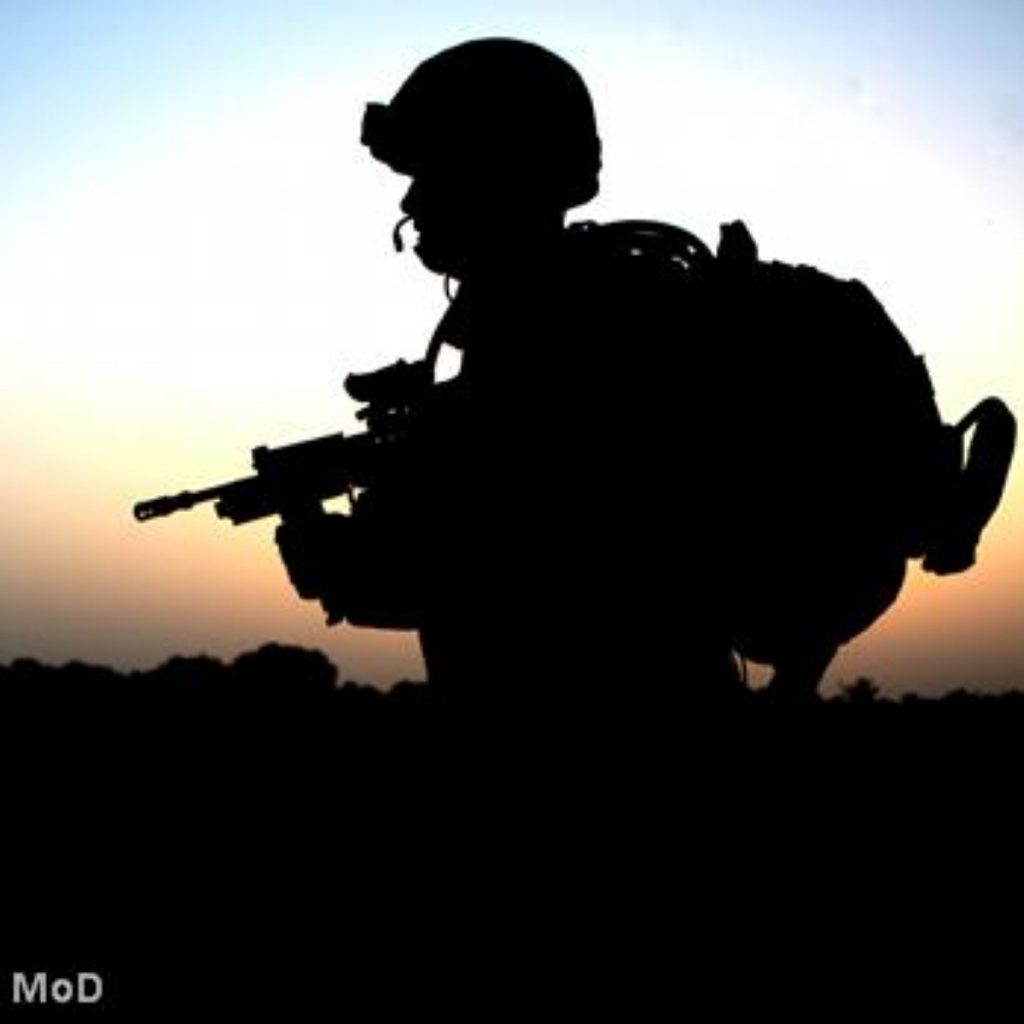Leaders unmoving over Afghan exit after soldier deaths
By Alex Stevenson Follow @alex__stevenson
Britain is making progress in Afghanistan, David Cameron has insisted, after news of the feared deaths of six UK soldiers.
The prime minister told MPs the British military was on track to end its combat role on schedule, by the end of 2014, after noting that if confirmed this would be the largest UK loss of life in a single incident in Afghanistan since 2006.
Five personnel from the Yorkshire Regiment's 3rd Battalion and one from the 1st Battalion of the Duke of Lancaster's Regiment are missing, the Ministry of Defence announced this morning.


They are thought to have been killed when their Warrior Armoured Fighting Vehicle was caught in an explosion yesterday. Next of kin have been informed.
"Every death and every injury reminds us of the human cost paid by our armed forces to keep our country safe," Mr Cameron told the Commons.
"I know everyone will want a message of support and backing for our troops and their families to go out from this House today."
He was joined by Labour leader Ed Miliband, who said: "Today is a day we are reminding of the ongoing commitment and sacrifice that our service personnel make on our behalf.
"By putting themselves in harm's way for our benefit they demonstrate the utmost courage."
If confirmed the fatalities will take Britain's death toll in Afghanistan over the 400-mark to 404 – significantly more than the 179 UK soldiers who lost their lives in Iraq. There had been four deaths in Afghanistan so far this year.
Defence secretary Philip Hammond condemned those responsible for the feared deaths of six British soldiers in Afghanistan.
"This tragic incident brings home to us the dangers that are faced on a daily basis by the men and women of our Armed Forces deployed in Afghanistan," Mr Hammond said earlier.
"I utterly condemn those responsible for this incident who will ultimately fail to derail a mission that is protecting our national security at home and making real progress in Helmand province – a testament to the bravery, commitment and professionalism of our armed forces."
He pointed out that the "continuing efforts" of Britain's armed forces were helping build up Afghan's national security forces so that Afghanistan could "stand on its own two feet" when British forces end their combat role in the region at the end of 2014.
Britain's senior military officer, chief of defence staff General Sir David Richards, said improvements in the "ever more capable Afghan army and police" were testament to the contribution made by the UK's own armed forces.
"Increasingly the Afghans themselves are taking the lead in providing security across Helmand," he said.
"This transition is allowing Afghans to gain the confidence to reject the Taliban and live normal lives."
Mr Cameron said he would raise the need for the UK and US to remain "absolutely in lock step" over the importance of training up the Afghan forces. The Afghan army is now 184,000-strong and is on target to grow to 195,000 at the end of this year, he told MPs.

